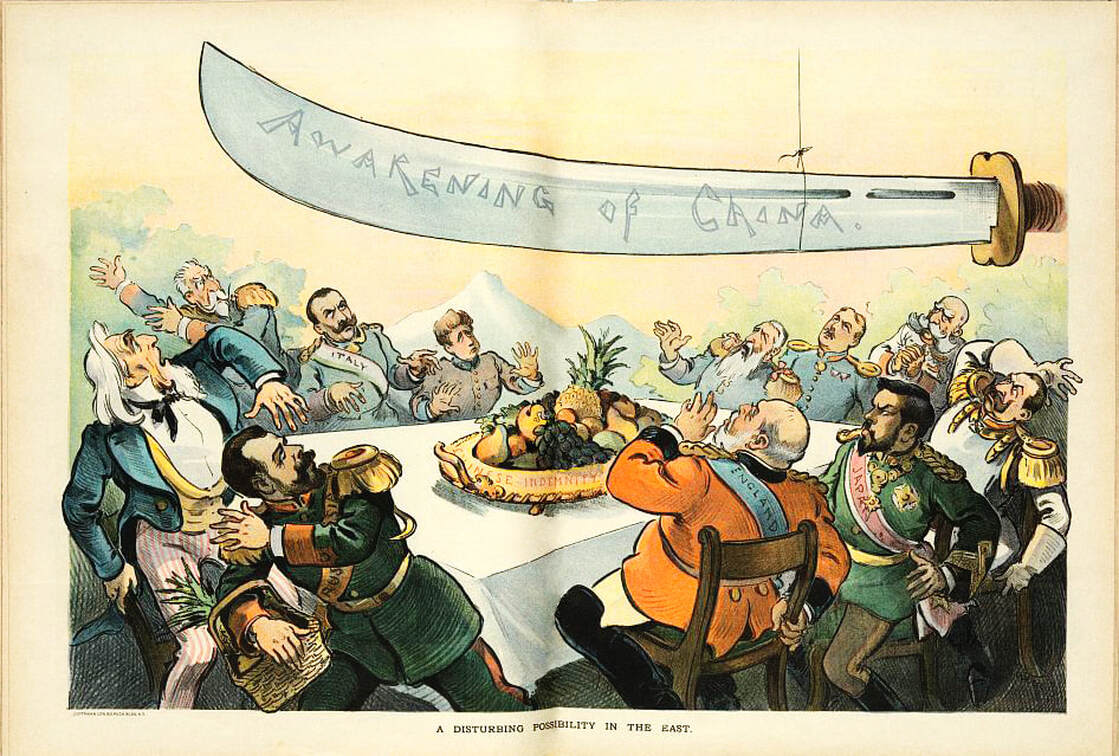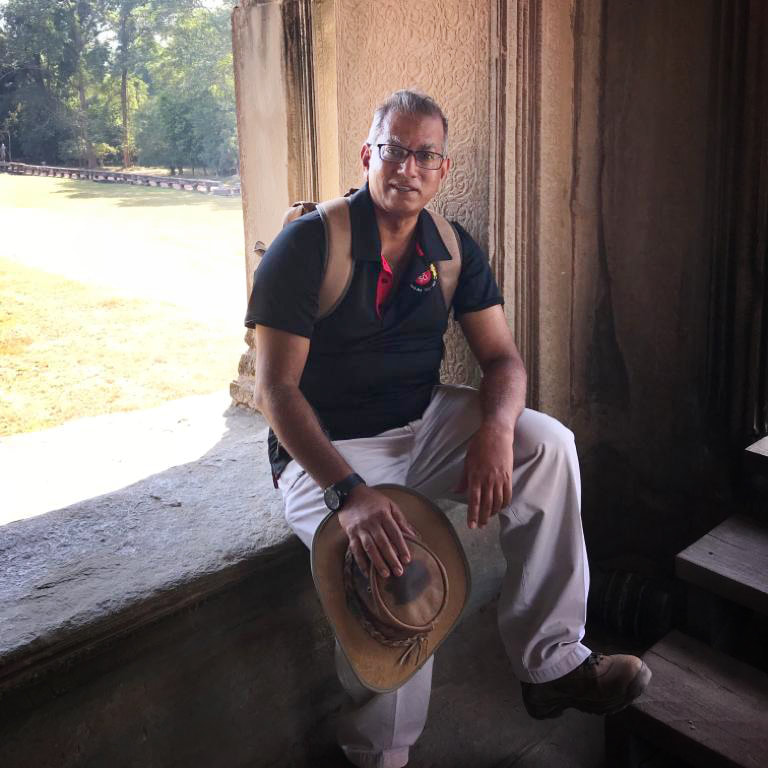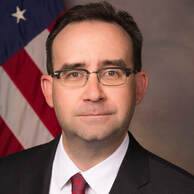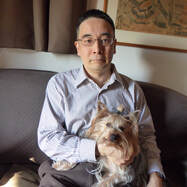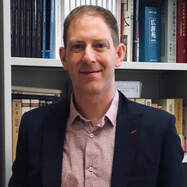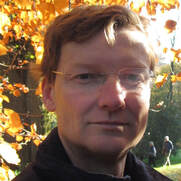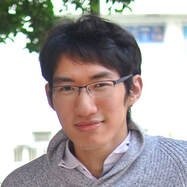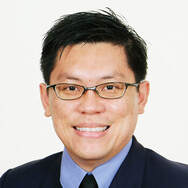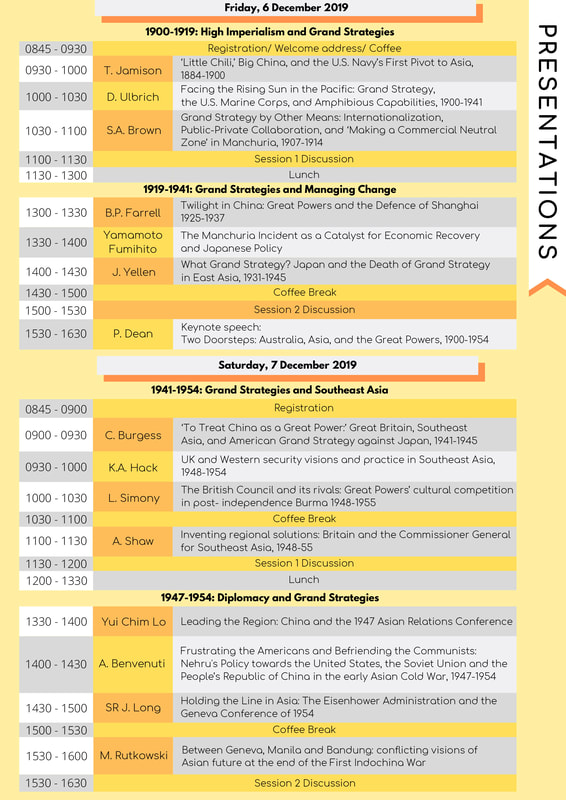FOREWORD
It gives me great pleasure to welcome the speakers and participants of this conference on ‘Great Powers and Grand Strategies in the Asia Pacific 1900 - 1954’.
This is a collaboration between the National University of Singapore, History Department and the Rise of Asia Museum at Haw Par Villa, Singapore. The museum will open in 2022 and it will focus on the story of Asia and its contribution to global economic development and growth.
Until the 1820s, India and China dominated world GDP. However, following western domination of Asia, Asian share of world GDP began to decline significantly. This was particularly so in the period of the late 19th century to the Second World War. The post-war liberation of much of Asia and Africa freed Asian economies from the constraints of colonisation and led to their re-emergence as economic powers. The museum will tell the story of the contributions of Asia to the world prior to colonisation, its decline during the period of Western domination, and its re-emergence as a major player in the world economy today. In particular, the museum will showcase the rise of Asia through the emergence of its multinational corporations (MNCs).
The period 1900 to 1954 represents a time of great change and transition. It marks not only the height of European domination at the start of the century, but also the beginning of its end caused by the great European civil war of 1914 – 1918. It is hoped that this conference will help to illuminate the primary issues – political and strategic – that shaped the interaction of great powers and their rise and fall in this region.
I would also like to thank our august list of speakers, many of whom have travelled great distances, for their contributions and involvement in this conference.
This conference marks the first project that the Rise of Asia Museum has embarked upon.
I would like to take this opportunity to thank the NUS and RoAM teams that were involved in organising this conference. Their hard work has made this conference possible. We have always believed in creating permanence out of transient events. In that regard, we will explore how the ideas generated in this conference can be shared with a wider audience in the future.
I wish all the speakers and delegates an interesting and intellectually stimulating conference.
Thank you.
This is a collaboration between the National University of Singapore, History Department and the Rise of Asia Museum at Haw Par Villa, Singapore. The museum will open in 2022 and it will focus on the story of Asia and its contribution to global economic development and growth.
Until the 1820s, India and China dominated world GDP. However, following western domination of Asia, Asian share of world GDP began to decline significantly. This was particularly so in the period of the late 19th century to the Second World War. The post-war liberation of much of Asia and Africa freed Asian economies from the constraints of colonisation and led to their re-emergence as economic powers. The museum will tell the story of the contributions of Asia to the world prior to colonisation, its decline during the period of Western domination, and its re-emergence as a major player in the world economy today. In particular, the museum will showcase the rise of Asia through the emergence of its multinational corporations (MNCs).
The period 1900 to 1954 represents a time of great change and transition. It marks not only the height of European domination at the start of the century, but also the beginning of its end caused by the great European civil war of 1914 – 1918. It is hoped that this conference will help to illuminate the primary issues – political and strategic – that shaped the interaction of great powers and their rise and fall in this region.
I would also like to thank our august list of speakers, many of whom have travelled great distances, for their contributions and involvement in this conference.
This conference marks the first project that the Rise of Asia Museum has embarked upon.
I would like to take this opportunity to thank the NUS and RoAM teams that were involved in organising this conference. Their hard work has made this conference possible. We have always believed in creating permanence out of transient events. In that regard, we will explore how the ideas generated in this conference can be shared with a wider audience in the future.
I wish all the speakers and delegates an interesting and intellectually stimulating conference.
Thank you.
|
Academic Conference
|
GREAT POWERS AND
GRAND STRATEGIES IN THE ASIA PACIFIC 1900-1954 |
Speakers
Friday, 6 Dec 2019
|
Keynote Speaker
Peter Dean
Professor University of Western Australia Professor Peter J. Dean is a War Studies scholar who specialises in Australian strategic history and policy, military operations and the ANZUS Alliance. He joined The University of Western Australia as Pro Vice-Chancellor (Education) in 2018. Peter has been a Fulbright Fellow in Australia-United States Alliance Studies and an Endeavour Research Scholar as well as a non-resident fellow with the Centre for Strategic and International Studies (CSIS) and the Australia, New Zealand and Pacific Studies at Georgetown University in Washington D.C.
Before joining UWA, Peter was a scholar at the Strategic and Defence Studies Centre, Coral Bell School of Asia-Pacific Affairs, in the Australian National University’s College of Asia and the Pacific where he held numerous research, teaching and leadership positions. Peter is the editor of the Melbourne University Press Defence Studies Series, a member of the Editorial Boards of the Australian Army Journal and Global War Studies as well as being a former managing editor of the journal Security Challenges. He is the author / editor of nine books, the most recent being MacArthur’s Coalition: United States and Australian Operations in the Southwest Pacific 1942-1945 (University Press of Kansas 2018) and (with Brendan Taylor and Stephan Fruehling) After American Primacy: Imagining the Future of Australia's Defence (Melbourne University Press 2019). |
1900-1919
High Imperialism and Grand Strategies
High Imperialism and Grand Strategies
1919-1941
Grand Strategies and Managing Change
Grand Strategies and Managing Change
Saturday, 7 Dec 2019
1941-1954
Grand Strategies and Southeast Asia
Grand Strategies and Southeast Asia
1947-1954
Diplomacy and Grand Strategies
Diplomacy and Grand Strategies
Conference Schedule
*Schedule is subject to change.
Hear from distinguished speakers
|
Get your complimentary conference pass today!
|

